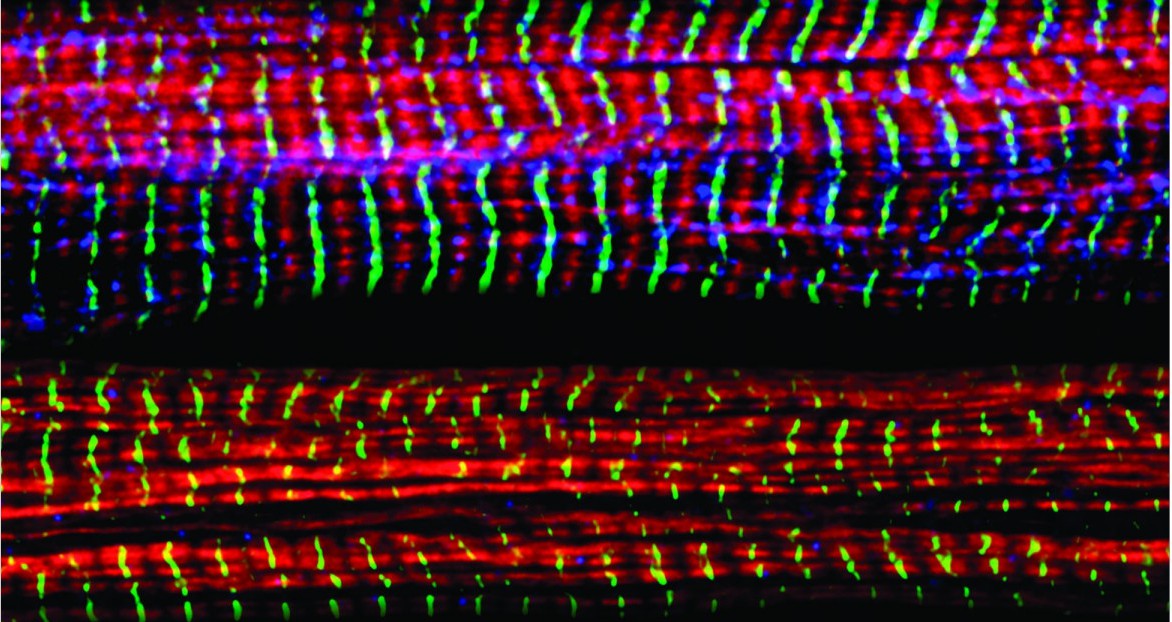If a cell can’t efficiently recycle its machinery—energy generators, protein makers, and transport systems—it ends up using faulty equipment. Cell recycling, called autophagy, is necessary to keep cells functioning at full capacity. When autophagy doesn’t work well in muscle stem cells, which replace worn-out muscle cells, the ability to maintain healthy muscle tissue is compromised.
This is precisely what Pier Lorenzo Puri, MD, professor in the Development, Aging, and Regeneration Program, discovered in a study conducted in collaboration with Lucia Latella, PhD, at the Fondazione Santa Lucia in Rome.
Their work, published in Cell Death and Differentiation, showed that impaired autophagy in muscle stem cells of patients with advanced Duchenne muscular dystrophy (DMD) reduces their ability to support long-term regeneration. DMD is a childhood-onset genetic disorder, which mostly affects boys and causes progressive muscle weakness, invariably leading to loss of the ability to walk. As the heart and respiratory muscles also eventually deteriorate, DMD shortens lifespan, usually to less than 30 years.
They also demonstrate that boosting autophagy in a mouse model of DMD, at later stages when the recycling process slows down, improves muscle regeneration.
“These findings provide solid evidence that future drugs that increase rates of autophagy would help DMD patients,” said Puri. “In this study, mice were fed a low-protein diet to induce autophagy. The low-protein diet makes cells break down their own proteins to get the building blocks needed to make new muscle. But of course a low-protein diet isn’t a feasible approach in the long term, which is why we need drugs that specifically induce autophagy.
“Although there are several FDA-approved drugs to treat other conditions—such as high blood sugar and elevated cholesterol—they tend to have side effects that would rule them out for DMD patients. It may take a few years, but new drugs that activate autophagy in DMD patients could significantly improve their health.
Our next step will be to examine whether combining this approach with others, such as nitric oxide releasers or histone deacetylase inhibitors, which may also increase autophagy, would further promote muscle regeneration.”
The paper is available online here.
